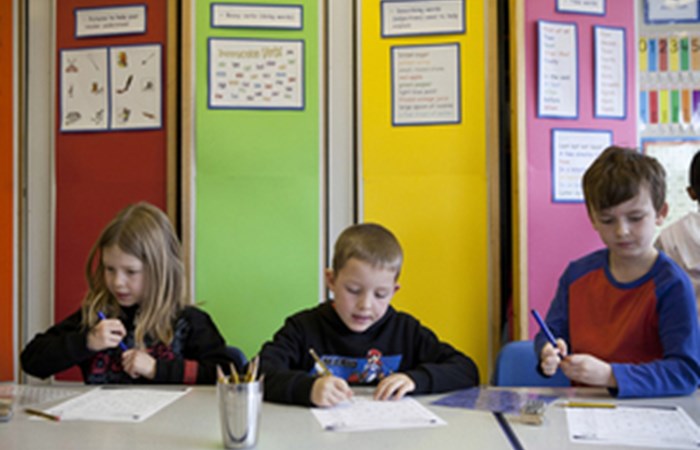Department for Education

Pupils in England are outperforming peers across the world in reading and literacy, according to an international study published today (5 December).
The Progress in International Reading Literacy Study (PIRLS) ranks England joint eighth out of 50 countries, and among the highest performing countries in Europe.
The results which are based on a study of the reading comprehension and enjoyment of a cohort of 340,000 nine-year-olds around the world - mean Englands nine-year-olds are significantly better readers than their American, Canadian and Australian counterparts.
The study was first introduced in 2001, and this years results are the countrys best to date and a dramatic improvement on the 2006 results, when England was ranked 19th out of 45 countries. The study also reveals that while all pupils are making improvements it is low-performing pupils who have made the greatest progress.
It follows the publication of figures in September which show 154,000 more six-year-old children are on track to become fluent readers compared to 2012.
School Standards Minister Nick Gibb said:
Todays results put the success of our increased emphasis on phonics and continued focus on raising education standards on a global scale. Thanks to the hard work of teachers across the country, 154,000 more six year olds are reading better than ever before this is fundamental to our ambition of helping every child fulfil their potential.
Our rise through the global rankings is even more commendable because it has been driven by an increase in the number of low-performing pupils reading well. This demonstrates our determination to ensure this is a country that works for everyone, regardless of background.
Mark Lehain, Director of Parents and Teachers for Excellence and Founder of Bedford Free School, said:
This adds to the already substantial base of evidence that systematic synthetic phonics are the most effective way of starting a childs lifelong love of reading. The hard work of the teaching profession is shown in the excellent results that these children have achieved, and we should all be proud of what we as a country have done here.
There is also a wider point about the reforms of the past seven years. A great deal of bravery was required to really shake up the system and implement them, but here is yet more evidence that this was the right thing to do.
Michaela Khatib, Head Teacher at Cobham Free School, said:
Im really pleased to see that English pupils have done so well in this test. Reading is one of the core skills that all pupils should be able to master by the time they turn 10, and I think that the recent work put in by teachers to implement the phonics check across the country has definitely begun to pay dividends. Its also great to see that so many children say they have a real love of reading, and we must keep working towards the goal of every child being able to access the best of what their cultural heritage has to offer.
Clare Sealy, Headteacher at St Matthias School, Tower Hamlets, said:
These results are hugely encouraging because they are further evidence that the hard work of the profession and focus on both reading high quality literature alongside excellent phonics teaching is really making a difference.
As a profession we are determined that every child gets the best possible start to their school career, and skilled phonics teaching, alongside immersion in the amazing riches of the best of childrens literature, are both absolutely crucial if we are to kick start a life-long love of reading.
We know from research that children who read for pleasure do best at school, so it is particularly heartening to see that children are developing a love of reading, not only because this will help them thrive at school but also because their lives will be so much richer as a result.
The pupils who took part in this study are the first to be assessed since the governments wide ranging education reforms, which saw the introduction of the more rigorous, knowledge-rich primary school curriculum.
This includes an increased focus on phonics the internationally approved approach to teaching children to read by breaking words down into their component sounds and blending these sounds together as well as a focus on children reading more and enjoying more challenging texts in the classroom.
The improved PIRLS results reflect the raising of standards in schools more generally across the country. Thanks to the dedication of teachers and the governments reforms the proportion of pupils meeting the expected standard in phonics has risen from just 58% in 2012 to 81% in 2017, with 92% of pupils reaching this standard by age seven.
The attainment gap between disadvantaged pupils and their more affluent peers has also closed by 9.3% at age 11 and 7% at age 16 and this summer secondary schools rose to the challenge of the new more demanding GCSEs in English and maths.
PIRLS is a worldwide research project that takes place every five years to look at trends in childrens reading literacy achievement over time. The study assesses the knowledge and skills of pupils aged 9 to 10 around the world. England is joint eighth of 50 countries in this years study with an average score of 559, the highest the country has achieved in the last four PIRLS cycles, significantly above the international median of 539.
The PIRLS study looks at the strategies used to teach reading. For example, in England, teachers are encouraged to use the phonics approach in their classrooms. It examines four main comprehension processes of reading. These are the abilities to:
- focus on and retrieve information explicitly stated in text
- make straightforward inferences from a text, understanding parts of a text that are not stated
- interpret and integrate ideas and information
- examine and evaluate content, language and features of texts
